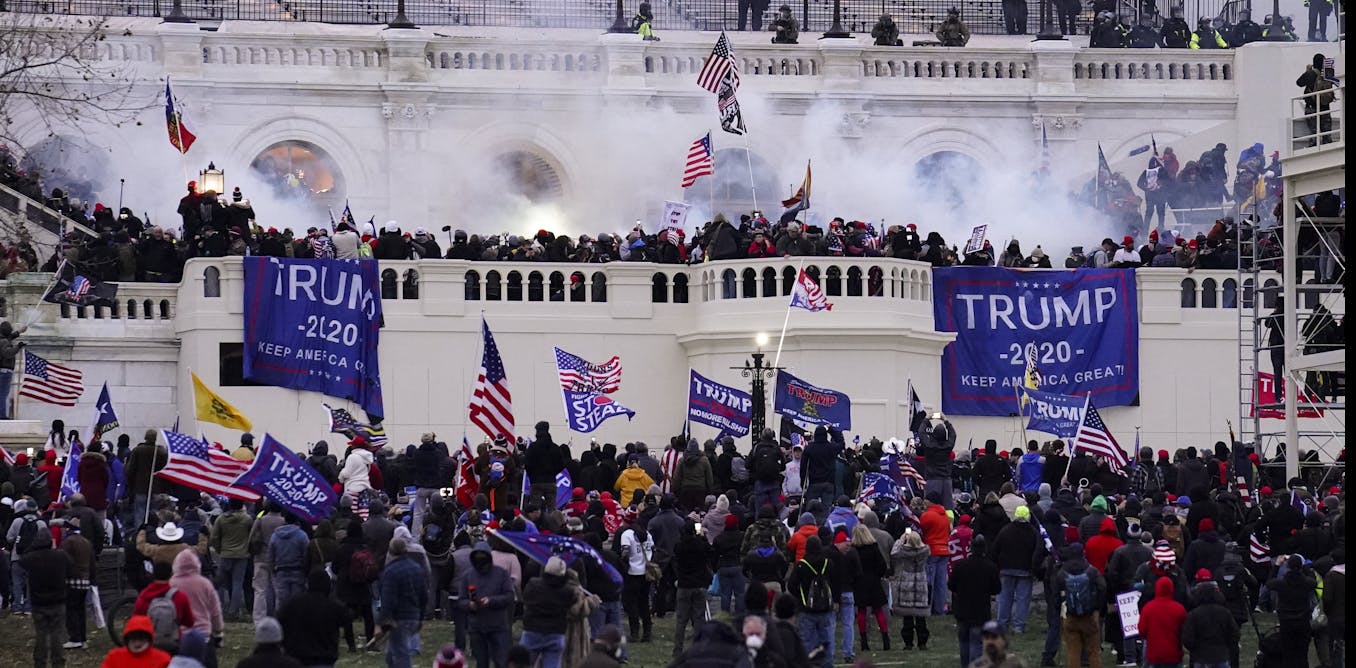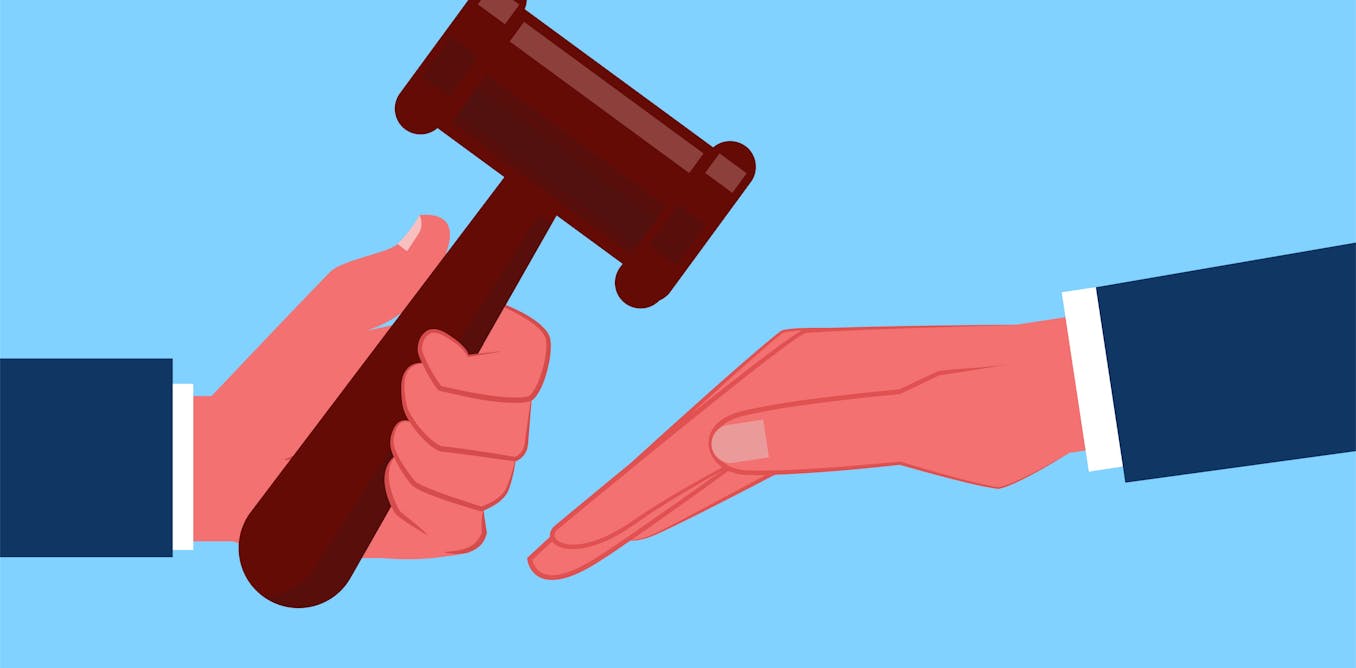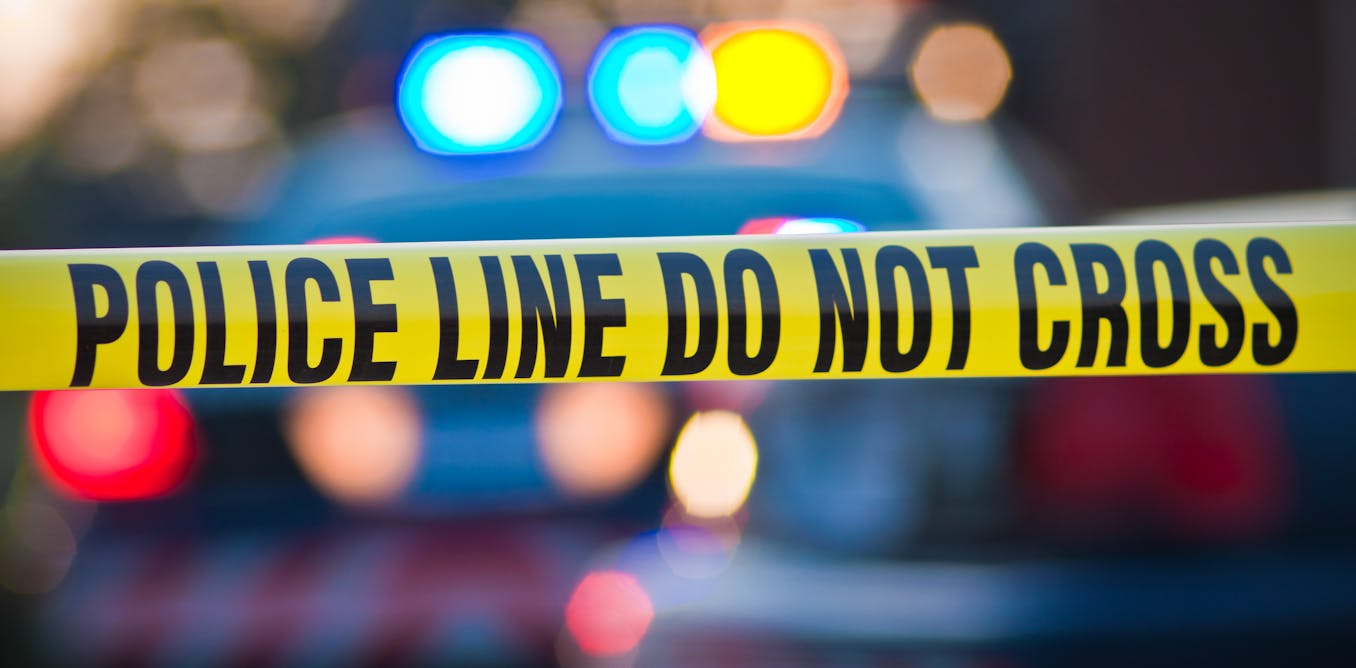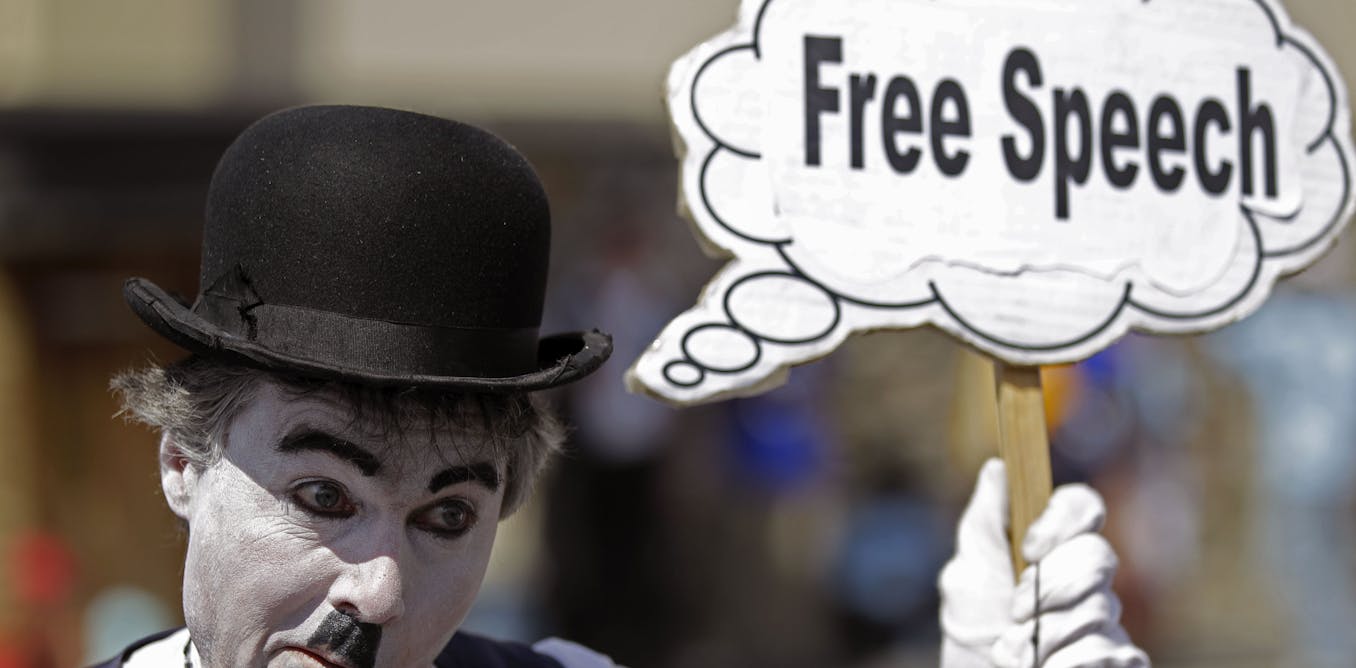The indictments – and in some cases, the convictions – of hundreds of persons charged with collaborating in the riot at the U.S. Capitol on Jan. 6, 2021, will have to be reconsidered, and potentially dropped, simply because of a ruling by the U.S. Supreme Court docket on June 28, 2024. Amid those billed utilizing a broad interpretation of the obstruction law now narrowed by the substantial court: previous President Donald Trump.
In its conclusion in Fischer v. United States, the Supreme Court docket held that a federal statute that prohibits obstructing an formal proceeding may well not use to a few defendants who ended up billed with collaborating in the U.S. Capitol riot. Whilst former President Donald Trump is not a defendant in the scenario, particular counsel Jack Smith has charged him independently with violating the same statute.
As a legislation professor who teaches and writes in the fields of constitutional law and federal courts, I’ll demonstrate what the court’s decision signifies for Jan. 6 defendants – and for Smith’s circumstance in opposition to Trump.
Fees versus Capitol rioters
In accordance to their indictments, Joseph Fischer, Edward Lang and Garret Miller were current at the Capitol on Jan. 6, 2021. Prosecutors say that all 3 gentlemen entered the Capitol building and assaulted police officers throughout the riot. 1 of the adult males, Lang, brandished a bat and a stolen police shield, and yet another, Miller, later on known as for the assassination of U.S. Rep. Alexandria Ocasio-Cortez on social media.
Federal prosecutors billed the 3 males with numerous crimes, which includes assault on a federal officer, disorderly perform on the Capitol grounds and obstructing a congressional continuing. That very last cost is the a single at problem in the Supreme Court docket enchantment.
Right before trial, the defendants argued that the legislation the prosecutors had utilised to charge them with obstruction used only to evidence tampering, not the violent disruption of a congressional proceeding. The district court agreed and dismissed the demand, but the U.S. Court of Appeals for the D.C. Circuit reversed and sent the case back again for trial.
The Supreme Court then agreed to listen to the circumstance, placing the trial on hold while it regarded the dispute more than the scope of the obstruction legislation.
AP Photograph/Jacquelyn Martin, File
Defining a catch-all expression
In a 6-3 impression by Main Justice John Roberts, the Supreme Court docket agreed with the defendants and held that the statute prohibits only proof tampering. It then despatched the situation again to the appeals court docket to make your mind up no matter whether the defendants violated the legislation below that narrower reading by making an attempt to avoid Congress from getting and certifying the states’ genuine electoral votes.
The court started with the textual content of the obstruction legislation. The law penalizes everyone who “alters, destroys, mutilates, or conceals a history, doc, or other object” or who “otherwise obstructs, influences, or impedes any formal proceeding.” The government argued that the defendants had “otherwise obstruct(ed)” proceedings in Congress to certify the outcomes of the 2020 election.
But the courtroom rejected that argument, keeping that the phrase “otherwise obstructs” refers only to obstruction that – like altering, destroying, mutilating or concealing a history, document or object – impairs the availability or integrity of proof for use in an official proceeding. The law’s catch-all for “otherwise obstructing” an formal proceeding must be examine in typical with the listing of actions that precedes it, the court spelled out. Normally, the record would be redundant.
The courtroom also pointed to the law’s historic qualifications. Congress, the court docket discussed, enacted this distinct obstruction legislation in 2002 in the wake of the Enron accounting fraud scandal. Its goal was to fill a gap in the nation’s existing obstruction regulations, which at the time prohibited directing a 3rd occasion to demolish incriminating evidence but not destroying the proof oneself.
The government’s studying of the law, the courtroom defined, would stretch it much further than that purpose, prohibiting types of obstruction that experienced nothing at all to do with proof and that Congress never supposed to criminalize.
What this usually means for Jan. 6 defendants – and for Trump
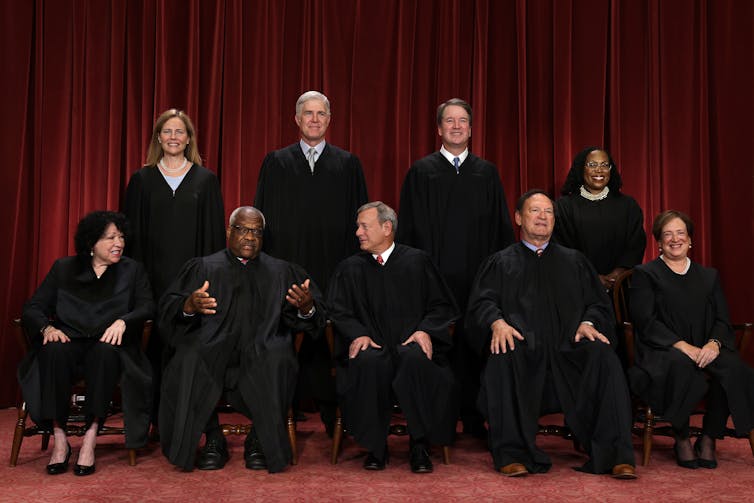
Alex Wong/Getty Photos
The Supreme Court’s determination does not conclude the situation against the Fischer defendants, who will probable stand demo on their assault and disorderly perform fees.
But it could direct to the dismissal of obstruction rates, or reversal of obstruction convictions, for other Jan. 6 defendants. In accordance to an NPR database, federal prosecutors have billed at least 250 other defendants with obstruction of an formal continuing, and 128 have been convicted.
The ruling may well also undermine unique counsel Jack Smith’s scenario in opposition to former President Donald Trump, whom Smith has billed with obstruction beneath the exact same legislation. If that case survives a different pending Supreme Court docket charm, the previous president will most likely request dismissal of that demand.
Trump could not realize success, even so, as the obstruction charge in opposition to him is primarily based in portion on the allegation that he structured slates of electors to certify untrue election final results to Congress. That could amount to impairing the integrity of the evidence made use of in the certification proceedings.
And the obstruction demand is also not the only rely the former president faces. But the ruling may perhaps slim the circumstance and make it a lot more hard for the exclusive counsel to current proof to the jury concerning the violence that occurred on Jan. 6. Less than this new ruling, that violence alone may perhaps not count as obstruction.
The Fischer situation also exhibits how often, particularly in higher-stakes conditions, the justices can use solutions of lawful reasoning that they are fast to criticize in other contexts. In the view, customers of the Supreme Court’s conservative the greater part cited the legislative historical past of the obstruction legislation – proof that conservative jurists these types of as the late Justice Antonin Scalia frequently called unreliable.
The Supreme Court’s decision in the Fischer case may perhaps have a profound effect on the distinctive counsel’s historic prosecution of previous President Trump.
But even if it does not, it even now sheds essential light on the court’s inner workings and the federal government’s electrical power to safeguard the integrity of its proceedings.

